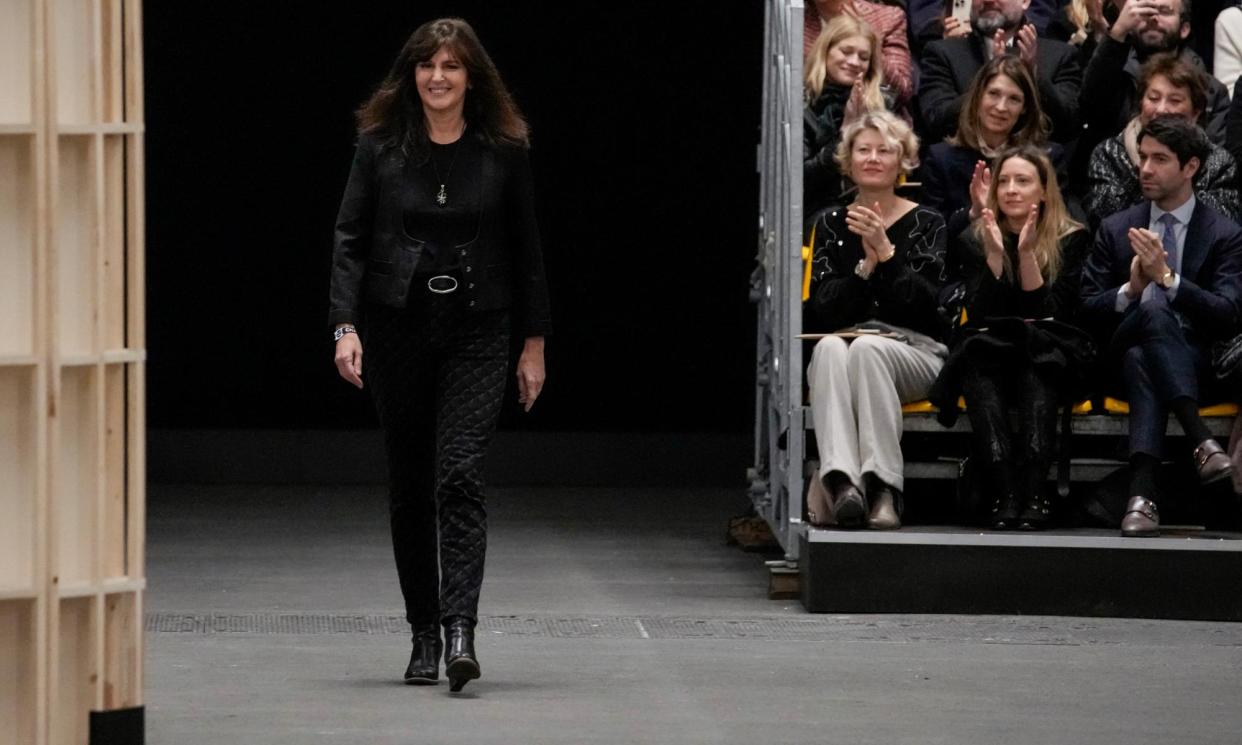As Virginie Viard leaves Chanel, who are the contenders to bring its buzz back?

Virginie Viard, the artistic director who replaced Karl Lagerfeld at Chanel after his death in 2019, is to exit the French luxury brand, leaving open one of fashion’s top jobs.
Viard was just the third artistic director at the 114-year-old brand after Lagerfeld and its founder, Gabrielle “Coco” Chanel. She will leave after five years in the role and three decades with the fashion house.
The company said Viard had made a “remarkable contribution to Chanel’s fashion, creativity and vitality” and a new “creative organisation for the house will be announced in due course”. Its couture show, scheduled for the end of June, will be overseen by its design team.
Viard’s departure has long been rumoured and creates a significant vacancy in the high-end fashion sector. Last year, the fashion insider newsletter Line Sheet reported that Viard’s tenure at Chanel “was always meant to be temporary” and Nicolas Ghesquiere, the creative director at Louis Vuitton, was in the frame for the job.
A year on, the speculation continues, with new names surfacing in the latest round of fashion musical chairs. Hedi Slimane, who has made a rock’n’roll aesthetic highly successful at Celine, is a strong candidate, with Business of Fashion reporting that he has been “locked in thorny contract negotiations” since autumn.
Other designers without positions at brands include Pierpaolo Piccoli – who left Valentino in March – and Sarah Burton, who headed up Alexander McQueen until last year.
The appointment of Burton would be applauded beyond her design prowess. Viard’s departure reduces again the number of women at the helm of luxury brands – a point raised when Seán McGirr was named as Burton’s replacement at Alexander McQueen last year.
An Instagram post shared by 1 Granary magazine showcased how Kering, Alexander McQueen’s parent company, had six white men heading up its brands, a trend noted across fashion. While this has changed somewhat, with Chemena Kamali at Chloé and Veronica Leoni the new creative director at Calvin Klein, it remains an issue.
Phoebe Philo, Tom Ford and Marc Jacobs – who often wears a Chanel jacket – are other names posited on social media. The Jacobs connection goes back a long way: in 2005, he told New York magazine: “Chanel would be the scariest job in the world to get, but it would also be the coup de grâce”.
Chanel has boomed under Viard, who worked with Lagerfeld for 30 years before stepping up in 2019. Revenue was $19.7bn (£15.4bn) in 2023, up 75% on 2018. This may in part be due to huge price hikes of Chanel’s trademark handbags – a quilted 2.55 design cost about £3,000 in 2010; the equivalent is now £11,000 – but clothing sales have also more than doubled since 2018.
Along with commercial success, there is the cultural imprint of the brand, which was founded as a hat boutique in Paris in 1910. Thanks to an enigmatic and controversial founder, and a creative renaissance under Lagerfeld from the 1980s onwards, it is now so well-known that it is referenced in episodes of The Simpsons and Bad Bunny songs.
If Viard has overseen a financially successful period for Chanel, the reception within fashion for her collections has been more muted. The buzz Lagerfeld created each season, with shows that recreated Parisian brasseries or featured a replica of a rocket, did not carry over.
Those behind the brand will be keen to appoint a designer who can continue the commercial success of Viard’s period, while making Chanel a fashion talking point once again.


